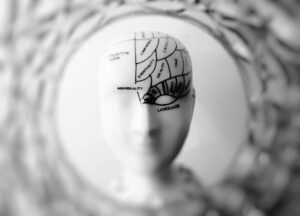Tagged: “forgiveness is a choice”
Is it true that people “Forgive and Forget”?

Image by Meo, Pexels.com
A recent set of four studies examined the extent to which people actually forget the unjust situation once they have forgiven. The reference to that work is:
Fernández-Miranda, G., Stanley, M., Murray, S., Faul, L., & De Brigard, F. (2025). The emotional impact of forgiveness on autobiographical memories of past wrongdoings. Journal of Experimental Psychology: General. Advance online publication. https://doi.org/10.1037/xge0001787
The authors made the distinction between the possibility that the memory of the event fades (what they called “episodic fading”) and what they called “emotional fading” in which the strong and negative emotions are diminished upon forgiving.
The authors, in their abstract, concluded this:
“While the episodic fading account predicts that forgiveness is associated with less vivid and detailed memories of being wronged, the emotional fading account predicts that forgiveness need not be associated with diminished episodic characteristics. Across four studies (N = 1,479, after exclusions), we found consistent support for the emotional fading account but not for the episodic fading account.”
In other words, people do not literally forget what happened once they forgive. The memory can pass through the mind and heart without the heightened negative emotions welling up.
“Forgive and forget” may need to be rephrased as “forgiving and remembering in new ways.”
2025: The 30th Anniversary of the First-Ever National Conference on Person-to-Person Forgiveness Ever Held at a University

Image by John-Mark Smith, Pexels.com
My, how time flies. It now has been 30 years since the National Conference on Forgiveness, held at the University of Wisconsin-Madison, March/April, 1995. This was the first conference on the topic of person-to-person forgiveness held on a university campus. This shows you how rare the discussion of forgiveness has been within humanity ever since its clear emergence as vital in Genesis, Chapters 37-45, in which Joseph forgave his 10 half-brothers for attempted murder and then selling him into slavery in Egypt. There are debates regarding the date of Genesis’s composition, but it appears to have been written approximately 3,000 years ago.
Think about that for a moment. History has shown us how important it is to forgive each other, and yet it took until 1995 for the first national conference on person-to-person forgiveness to emerge (unless I somehow missed such a newsworthy event from the past). That conference was filled with pioneers on the theme of people forgiving each other. For example, Desmond Tutu gave the opening remarks through an audio-recorded talk. Marietta Jaeger, a hero who forgave the murderer of her daughter, Suzy, showed us that it is possible to forgive what some might consider unforgivable. Paul Coleman and Richard Fitzgibbons, both therapists who introduced the idea of forgiveness therapy within the helping professions, offered their insights. Joanna North and Keith Yandell, both first-class philosophers, reflected on the meaning of interpersonal forgiveness. Suzanne Freedman and Julio Rique Neto, both early social scientific researchers on forgiveness, shared their views.
The conference was video-recorded, and the presentations were turned into 12 chapters for the edited book, Exploring Forgiveness, published by the University of Wisconsin Press in 1998. Some quotations from that book are as follows:
“Without forgiveness there is no future.”
(Rev. Desmond Tutu, Foreword, Exploring Forgiveness, p. xiii)
“Hatred eats away at our well-being.”
(Rev. Desmond Tutu, Foreword, Exploring Forgiveness, p. xiii)
“Forgiveness is hard work. It demands diligent self-discipline, constant corralling of our basest instincts, custody of the tongue, and a steadfast refusal not to get caught up in the mean-spiritedness of our times.”
(Marietta Jaeger, Exploring Forgiveness, p. 12)
“However justified, our unforgiveness undoes us.”
(Marietta Jaeger, Exploring Forgiveness, p. 14)
“. . . anger can be displaced for many years and erupt decades later in loving relationships with significant others. It will not be fully resolved until a conscious decision is made to let go of the desire for revenge and to forgive.”
(Richard Fitzgibbons, Exploring Forgiveness, p. 64)
“Restoring affection and regard, overcoming estrangements and alienation, accepting and welcoming others: these are the values which we should endeavor to realize in our dealings with one another.”
(Joanna North, Exploring Forgiveness, p. 34)
“So people learn to forgive, or they wither as persons . .”
(Keith Yandell, Exploring Forgiveness, p. 45)
“Forgiveness is a gift to others, not just to self.”
(Robert Enright, Suzanne Freedman, and Julio Rique, Exploring Forgiveness, p. 48)
“To forgive means to begin seeing the other in a new way, as a member of the human community rather than as evil incarnate.”
(Robert Enright, Suzanne Freedman, and Julio Rique, Exploring Forgiveness, p. 50)
It seems to me that it is well past the time to intensify the importance and practice of forgiving in our families, local communities, schools, and between communities in conflict. Do you think the peace movement would have a deeper impact if forgiveness, properly understood and practiced, became a characteristic part of peace-building? We have waited too long. Let us redeem the time by putting forgiveness right in the center of interpersonal interactions so that it can be applied forthrightly whenever conflicts seem to be heating up to such a degree as to be harmful. Forgiveness, then, practiced in such contexts could lower the interpersonal temperature and protect individuals, relationships, and communities.
![]()
Which Protects You Better: Anger or Forgiveness?
On May 14, 2025, an essay was published on the Psychology Today website (Which Protects You Better: Anger or Forgiveness?) contrasting anger as a response to injustice and forgiveness as a very different response. The contrast was discussed because research shows that short-term anger can be beneficial.

Image by Pixabay, Pexels.com
As stated on the website:
“In a recent journal article, Lench et al. (2024) showed in a series of studies that anger ‘has benefits for attaining goals.’ For example, when given very difficult puzzles to solve, it was those who became angry at not progressing who successfully and accurately completed the puzzle. In another example, when presented with video games that had challenges within the game, those who became angry ended with higher scores than those who did not get angry. As a final example, among others in the journal article, those who got angry were more likely to protect their finances when outside sources threatened their money.
What is interesting to note in each of these examples is that the problems were very short-term. Puzzle challenges do not last for years, but instead for minutes or perhaps hours. It is the same with video games, and once the finances are protected in the short run, the challenge and therefore the anger can lessen.”
In contrast, the positive effects of forgiving those who acted unfairly have been well documented in the psychological scientific literature. See, for example, Akhtar and Barlow (2018) and Enright and Fitzgibbons (2024). In response to the title’s question, the essay then makes this statement:
“The question is based on a misunderstanding of the process of forgiveness.”
It is followed up with this answer:
“Over 30 years ago, a process model of forgiveness was introduced into the published literature (Enright & the Human Development Study Group, 1991). One of the first parts of the forgiveness process is to be angry (or sad or frustrated) because this reaction to unjust treatment from others seems to be a natural part of forgiving for many people. In other words, when people forgive, there is time set aside for anger or related emotions as a result of being treated unjustly. Only after people have had the chance to explore their reaction to the injustice do they then move forward with a decision (or not) to forgive, and to offer mercy to those who have not been good to the forgiver.”
The Psychology Today essay ends this way:
“Therefore, in response to the question of which is better, short-term anger or forgiving, the answer is both. They work together, first by acknowledging and feeling the anger, and then deciding to forgive and struggling to offer goodness to the other person.
An important insight about anger and forgiveness is that forgiveness helps mitigate or alleviate short-term anger, preventing it from developing into long-term irritability that can psychologically and physically damage the individual who was treated unjustly.”
![]()
References
Akhtar, S. & Barlow, J. (2018). Forgiveness therapy for the promotion of mental well-being: A systematic review and meta-analysis. Trauma, Violence, and Abuse, 19, 107-122.
Enright, R.D. & Fitzgibbons, R. (2024). Forgiveness therapy. APA Books.
Enright, R. D., and the Human Development Study Group. (1991). The moral development of forgiveness. In W. Kurtines & J. Gewirtz (Eds.), Handbook of moral behavior and development, (Vol. 1, pp. 123-152). Erlbaum.
Lench, H. C., Reed, N. T., George, T., Kaiser, K. A., & North, S. G. (2024). Anger has benefits for attaining goals. Journal of Personality and Social Psychology, 126, 587–602.
A Forgotten History of Polish People’s Forgiveness After Auschwitz
This is a guest blog post from Edward Reid, who runs the “Polish History” site on Facebook. The essay, copied in full here with Mr. Reid’s permission, shows the forgiving nature of the Polish people after Rudolf Höss brutalized so many in Auschwitz.
Facebook page – April 16, 2025
The essay is as follows:

Image by Karolina Grabowska, Pexels.com
In 1947, Rudolf Höss, commandant of German KL Auschwitz in the years 1940-1943, was sentenced to death by the Supreme National Tribunal in Poland. Two weeks later, on 16 April, he was hanged next to the crematorium of the former concentration camp.
Rudolf Höss did not fear death. What he feared was torture, which he believed was inevitable at the hands of his Polish captors. After all, Auschwitz had been located in German-occupied Poland, and it was the Polish people who had suffered so terribly under his command.
What he encountered instead left him stunned.
He was not met with hatred or violence, but with decency and restraint. “I have to confess that I never would have expected to be treated so decently and so kindly in a Polish prison,” he later wrote. That unexpected mercy opened something within him. Several of the Polish guards, themselves former prisoners of Auschwitz, quietly showed him the tattoos burned into their arms. Rather than seek revenge, they treated him with dignity.
It was an act that brought him shame. If those he had helped torment could offer him humanity, then perhaps, he began to wonder, God might offer him mercy as well. Apathy gave way to guilt. Recognition replaced denial. He began to grasp the weight of what he had done.
For the first time, his soul responded to a flicker of love. The ideology he had once followed so blindly had taught him that Poles were inferior, little more than cattle. But now, through their compassion, he saw clearly the humanity of those he had dehumanized. And in that realization, he began to understand the true gravity of his crimes.“In the solitude of my prison cell, I have come to the bitter recognition that I have sinned gravely against humanity,” he wrote. “I caused unspeakable suffering for the Polish people in particular. I am to pay for this with my life. May the Lord God forgive one day what I have done. I ask the Polish people for forgiveness.”
By all accounts, his repentance appeared genuine. On April 4, 1947, which was Good Friday that year, Höss asked to make a confession. The prison guards struggled to find a priest who spoke fluent German. That is when Höss remembered Father Władysław Lohn, a Jesuit he had once saved from execution. The guards located him in Łagiewniki, Poland, where he was then serving as chaplain at the Shrine of Divine Mercy. Father Lohn heard his confession on the Thursday of Easter week. The next day, he gave him Holy Communion and Viaticum.
Witnesses said that as Höss knelt in his prison cell, he appeared like a small boy.
The man who had once been trained to suppress all weakness now wept openly.
Five days later, on April 16, 1947, as the noose was placed around his neck at Auschwitz, Father Tadeusz Zaremba stood beside him and recited the prayers for the dying.
Whether or not he deserved forgiveness is something each person must decide for themselves. But the crimes committed against the Polish people must never be forgotten.
And neither should the quiet strength of those who, even in the face of unimaginable suffering, chose mercy. This is also why the Polish people, despite their profound heroism and the scale of their suffering were left behind in the telling of history. They did not turn their pain into politics or profit. They did not build monuments to themselves and demand all the world bow to their wounds. They endured in silence behind the Iron Curtain. Many showed mercy when they had every right to hate. And in doing so, they were forgotten by a world that rewards those who shout the loudest, not those who suffer with dignity.
But the truth remains. It was not only the victims who showed humanity – it was the forgotten Polish guards, the priests, the villagers, the mothers, the resistance fighters. They gave the world a quiet, sacred kind of courage.
The kind that history has yet to fully honor…
‘I Forgive You’: After Decades Behind Bars for His Wife’s Murder, Leo Schofield Finds Healing in a Call with the Man Who Confessed

Image by Tyler Lastovich, Pexels.com
On April 11, 2025, The News Review (https://www.nrtoday.com/he-served-36-years-for-his-wife-s-murder-and-then-forgave-the-man-who/article_473a7a92-17a1-4b83-95e0-e353e4bcb615.html) in Oregon reported on a man, Leo Schofield, who allegedly killed his wife. He was released from a correctional institution after serving 36 years. He maintained his innocence throughout the imprisonment.
Upon being released to regular society, Mr. Schofield took about one year, and then he had a telephone conversation with the man, Jeremy Scott, who proclaimed on several occasions that he was the one who murdered Mr. Schofield’s wife. It was at that time that Mr. Schofield forgave the other man, reporting that forgiveness is a process of “being freed from the effect” of the hurt he carried inside.
Mr. Schofield seems to have gone through the process of what we call the Work Phase of forgiveness, in which he started to think about Mr. Scott in new ways, not to condone what he did, but to better understand him. As reported in The News Review, Mr. Schofield said this, “‘I developed a certain respect and somewhat of an affinity for the guy,’ he said. ‘I wanted to tell him that I genuinely forgive him and, more important, I wanted him to know that there are people that care about him and want to see him do right.’”



